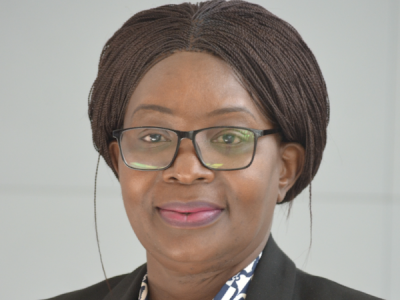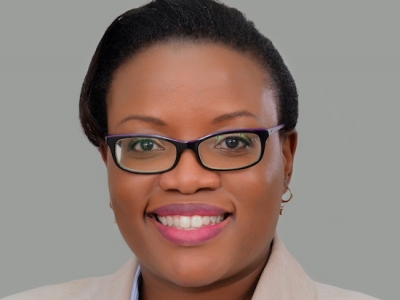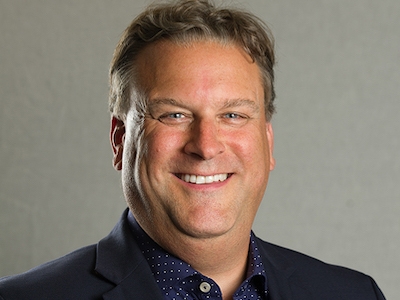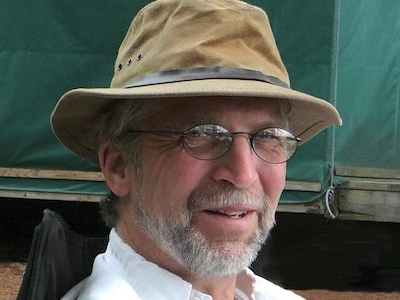 By Jeska Slater, Director of Indigenous Priorities, Vancouver Foundation
By Jeska Slater, Director of Indigenous Priorities, Vancouver Foundation
The Foundation launched an Indigenous-led initiative called the Indigenous Priorities Strategy that will focus on surfacing and addressing funding and capacity needs of First Nations, Inuit and Métis peoples in the lands now known as BC. The initiative will embed Indigenous priorities throughout the organization by building on previous efforts and specifically dedicate resources to support them. This strategy will be informed by existing data (to avoid overburdening communities with research) and convening Indigenous leaders and community activators to draw on their knowledge and expertise (while compensating them for their labour).
Vancouver Foundation has also launched the Strengthening Right Relationship Grants to focus on supporting efforts by other BC community foundations to decolonize their practices and policies in service to building and strengthening relationships with First Nations in their regions. These are project-based grants that require foundations to partner with a local First Nation or Indigenous-led organization to decolonize community foundations and effect meaningful systemic change.
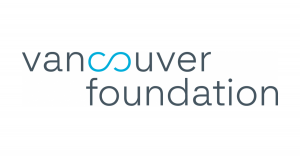 Sharing and shifting power with grantees
Sharing and shifting power with grantees
As trust-based philanthropy is a critical aspect of shifting and sharing power, Vancouver Foundation has begun implementing aspects of it in its grantmaking.
In 2021, one-time, unrestricted grants of up to $50,000 prioritized Black- and Indigenous-led organizations. The foundation used an oral application method and removed reporting requirements.
The foundation is also launching a new granting stream called the Indigenous Priorities Granting Program to provide one-time, unrestricted grants of up to $50,000 to Indigenous-led organizations for initiatives that encourage community inclusiveness, belonging and healing. Priority will be given to groups who have never applied or received grants from the foundation. The Program will have a simplified application form, informal reporting requirements for grantees, and increased support for unsuccessful applicants. The foundation will also collect feedback and demographic data to help identify gaps in the funding ecosystem for Indigenous communities, and to inform how subsequent grant cycles will be structured.
In the meantime, the foundation is embarking on a learning journey to examine the role of philanthropy in collaboration with various stakeholders (prioritizing equity-deserving groups) and how it can grant more equitably. Part of these learnings will also inform interim granting strategies for 2022 that will also allow staff capacity to focus on long-term approaches to its work through a Justice, Equity, Diversity and Inclusion (JEDI) lens.
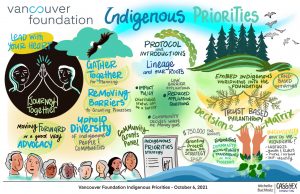
Listening and learning
The foundation is convening an Indigenous Community Panel made up of Indigenous community members who will offer diverse Indigenous wisdom, lived experience and community perspectives to make funding decisions and support the development of the Indigenous Priorities Strategy (while compensating them for their labour). By sharing decision-making power with Indigenous communities, the Panel will help to ensure the Strategy reflects and aligns with community priorities, keeping the foundation accountable and transparent to the communities it serves.
Advice for other foundations
Learn with intention. What sources already exist and how will you be accountable to those who share information with you? Meaningful engagement starts with intention to embed learning in a meaningful way.
Listen deeply.
Be prepared for discomfort. Reflect on how dominant ways of thinking impact you before committing to action.
Be cognizant of the emotional labour necessary for Indigenous people to engage in partnering with colonial institutions.
Be intentional with building relationships with Indigenous people by having the time and resources to do it meaningfully and authentically.
Walk alongside, not over, Indigenous partners by making space for their connection to the land, their teachings and their laws to create solutions that will benefit all Canadians. Western, academic modes of thinking have historically been privileged over Indigenous knowledge and worldviews, when in reality, the latter hold solutions to many of today’s problems.
Jeska Slater is a Nehiyaw Iskwew (Cree woman) from Fisher River Cree Nations, part of Treaty 5. She has recently been hired as the Director of Indigenous Priorities for the Vancouver Foundation. Slater is on LinkedIn.
Wednesday, November 24, 2021 in For homepage, Indigenous series
Share: Twitter, Facebook
